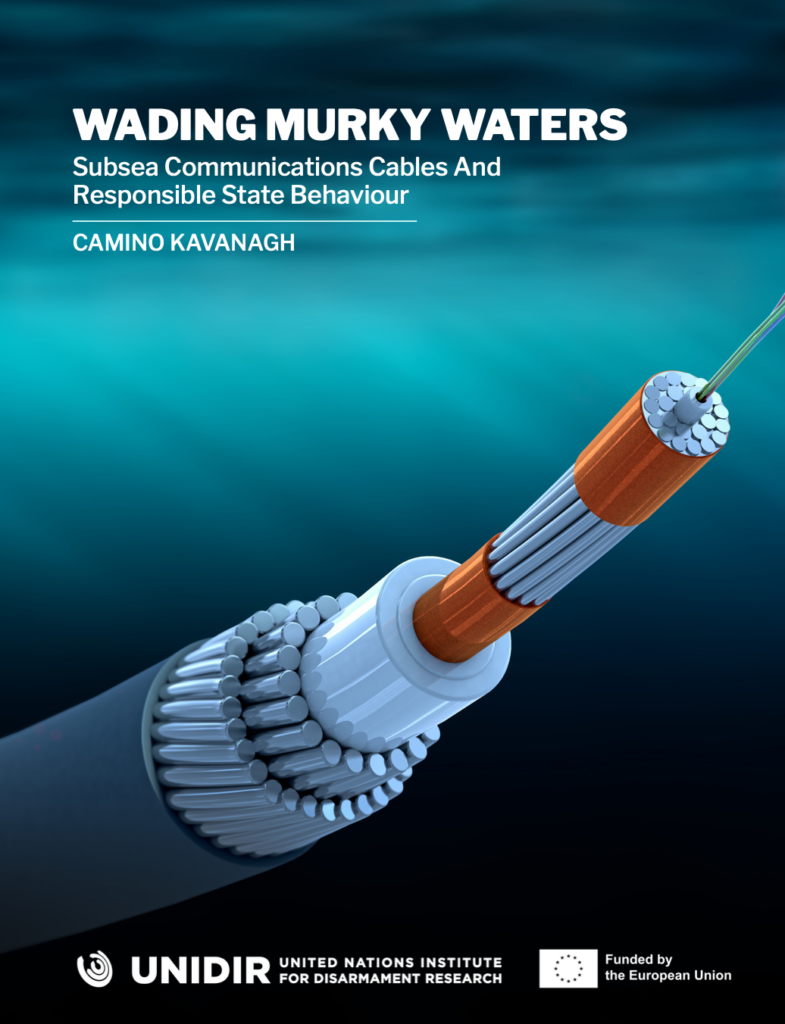Subsea communications cables are an essential element of the information and communications technology (ICT) ecosystem, transmitting practically all our telecommunications and data. Their security and resilience are critical to the well-being and functioning of societies across the globe, and to international security and stability. While technological innovation is enabling faster and more widespread connectivity, the global network of subsea communications cables is facing continuous physical and cyber threats, requiring urgent policy and operational responses involving both State and non-State actors.
This report approaches subsea communications cables from a systemic perspective: as core elements of the broader ICT ecosystem. It begins with an overview of developments in subsea cable technology and associated ‘wet’ (undersea) and ‘dry’ (land) plant infrastructure and the main actors involved in the subsea cable industry. It then provides an overview of the more commonly cited threats and vulnerabilities relevant to subsea cable systems and related infrastructure, followed by an introduction to the extant subsea cable governance regime. Drawing in part from the Government Best Practices of the International Cable Protection Committee and existing recommendations negotiated under the umbrella of the General Assembly’s First Committee on Disarmament and International Security, it concludes with some preliminary recommendations on cooperative steps that governments can take to advance responsible State behaviour and to strengthen the resilience of subsea cable systems and related infrastructure.
TRANSLATIONS
The Executive Summary of this publication is available in the following languages:
Sponsor Organizations: European Union
Citation: Camino Kavanagh (2023) "Wading Murky Waters: Subsea Communications Cables and Responsible State Behaviour", UNIDIR, Geneva, Switzerland.
